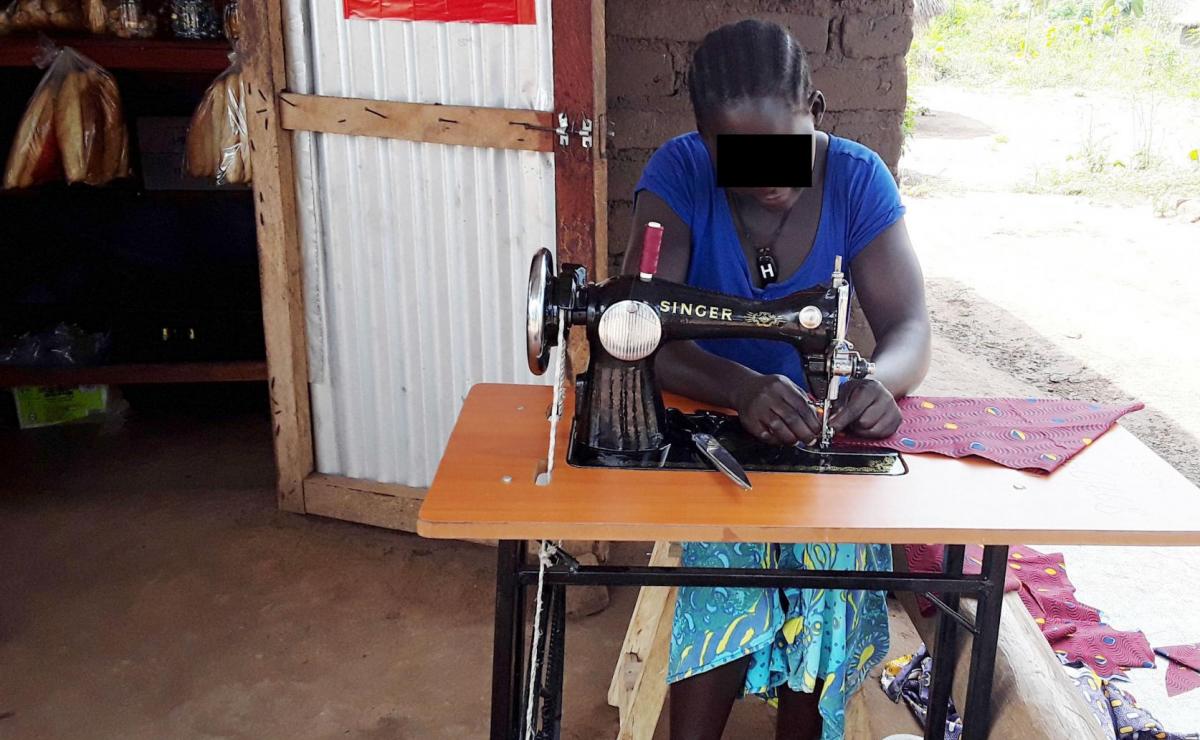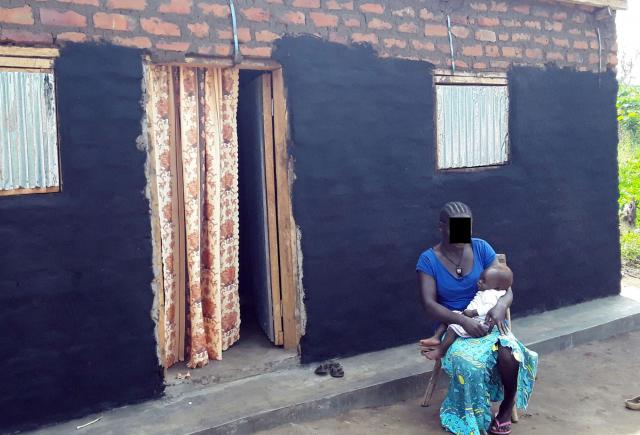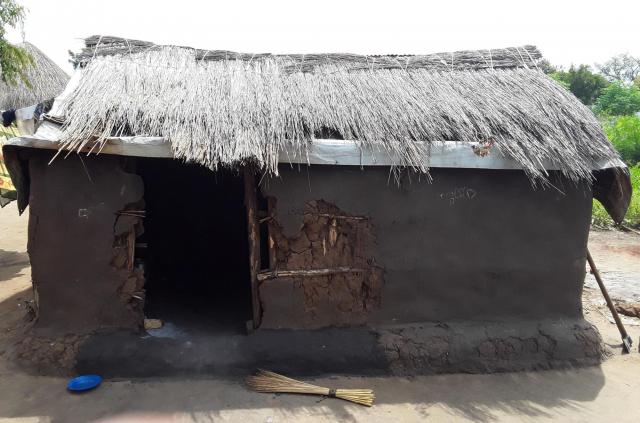LWF offers hope to persons with special needs

Palabek settlement - Rose Amoding (not real name) became a single mother after walking out of an abusive marriage. Left with 7 dependents, Amoding barely had hope of how she would fend for her family.
The 26-year-old lady who lives in Palebek settlement, Lamwo district is a South Sudanese refugee who fled Pajok, South Sudan in April 2017 due to the civil war characterised by arbitrary arrests and killings.
Left with nothing and with no skills to enable her earn an income, Amoding’s chances to fend for her family were slim yet the basic items she received from humanitarian organizations on her arrival to Uganda were hardly enough to sustain them (her and her family).
Amoding reached out to the Lutheran World Federation (LWF) for assistance. LWF conducted an assessment to determine her level of vulnerability especially in terms of her standards of living and thus, identified her need for support to establish a decent shelter and an income generating activity to sustain both herself and her family.

Through the IMPALW project, Amoding was offered a fully constructed sanitary facility and a decent shelter to accommodate both her and her family.
“I received a 2 months' training in entrepreneurship and tailoring skills which opened my thinking towards business, LWF also supported me with a cash grant worth UGX 1.5M which I used to establish a tailoring business.” Says Amoding.
She added that with the money, she bought two sowing machines, fabric to make and sell school uniforms and also paid rent for her work station
Amoding now earns an average of UGX 80,000 per month from her tailoring business which she uses to cater for her family’s financial needs. With her earnings, Amoding can now afford her family's basics like a balanced diet, soap, clothes, school fees among others.

The committed business lady supplements her earnings from the tailoring business with that from agriculture.
“Together with other women, we were trained in backyard gardening and also offered a farming start-up kit that included farming equipment and assorted seeds. I ventured in agriculture by establishing a backyard garden where I basically plant and harvest vegetables." Amoding supplements the food ratio with the food produce from her back yard garden and is able to provide her family with atleast three meals a day. She then sells off the surplus for a living.
Amoding is one of the 50 beneficiaries who have been supported under the IMPLAW project that is funded by the Bureau of Population, Refugees and Migration (PRM) and implemented by LWF, 44 of these now own income generating activities from which they earn a sustainable income.
Francis Kidega, a Project Assistant with LWF who is also part of the team that implements the IMPLAW project says that the project is aimed at alleviating poverty, extending social justice and uplifting the standards of living for refugees and host community residents in Palabek settlement to ensure that they live in a decent and dignified manner.
LWF appreciates PRM's support towards its humanitarian activities aimed at protecting lives and improving livelihoods among the persons of concern in Palabek refugee settlement.

